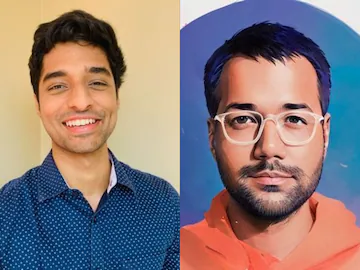Bengaluru Influencer Criticizes Sharan Hegde’s Firm for Unpaid Session Request
Ankit Vengurlekar, a former journalist, content developer, and speech coach based in Bengaluru, recently criticized Sharan Hegde’s business community platform, The 1% Club, for asking for unpaid online sessions. On social media, the influencer posted screenshots of the exchange, which sparked a broad discussion about equitable pay in professional and creative settings. According to Vengurlekar, he was asked to give a free online session by a representative of the site, which is connected to prominent financial influencer Sharan Hegde.
“My hourly fee is ₹25,000,” Vengurlekar replied strongly, criticizing the practice of expecting professionals to labor for free. In his piece, he stressed the value of honoring creative labor and said that membership-based platforms shouldn’t ask professionals in the field for unpaid labor.
The 1% Club’s Revenue Model Questioned:
Sharan Hegde established the 1% Club with the goal of assisting members in improving their personal growth and financial literacy. Vengurlekar pointed out in his post that the site collects membership fees, which is why the request for a free session was unreasonable. He referred to the strategy as “shameful,” highlighting the need for experts and artists to be compensated for their time and knowledge.
Many people in the creative and professional communities found resonance in Vengurlekar’s post, which brought attention to a persistent problem in which professionals and influencers are undervalued, particularly when platforms make money off of their work. Additionally, the speech coach said that this attitude not only mocks innovators but also creates a negative standard for other professionals in the field.
Broader Implications for Influencers and Professionals:
The incident brought back conversations about treating creators, consultants, and experts in many professions fairly and paying them appropriately. The growing call for fair practices in the gig economy, where professionals are frequently asked to perform unpaid labor in exchange for “exposure” or recognition, is highlighted by Vengurlekar’s answer. Many colleagues in the industry applauded Vengurlekar’s position, pointing out that his audacious reaction would inspire other artists to claim their worth. Support for his message surged on social media, as individuals criticized exploitative methods and urged companies to respect expert knowledge.
Sharan Hegde and The 1% Club Yet to Respond:
Sharan Hegde and officials of The 1% Club have yet to provide a public statement on the topic as of this writing. However, the event has raised awareness of the significance of equitable partnerships and the larger dynamics of influencer marketing. Ankit Vengurlekar’s outspoken opposition to unpaid labor has served as a focal point for artists who support fair compensation and professional respect. It’s unclear how websites like The 1% Club will modify their operations in response to these critiques as the discussion progresses.


Comments are closed.